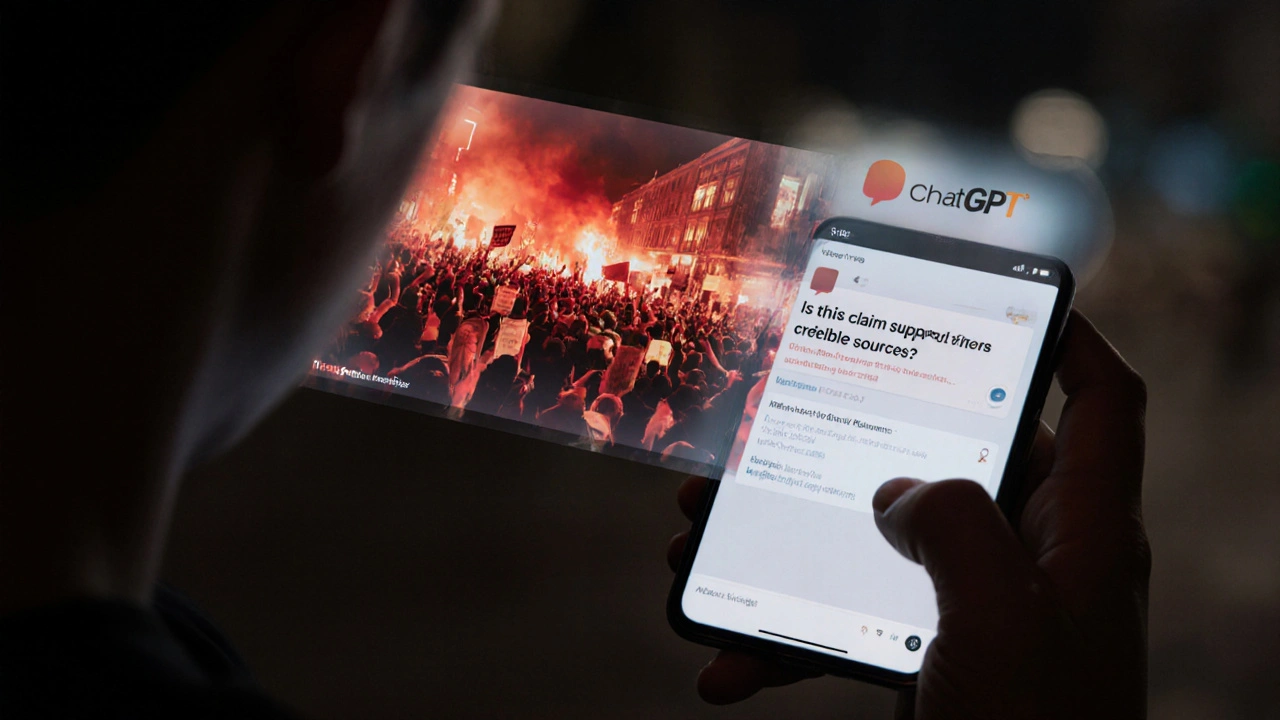
Learn how to use ChatGPT to spot propaganda, fake news, and manipulated content online. Simple steps to verify claims, detect AI-generated lies, and protect yourself from misinformation.
Ever feel overwhelmed by the flood of information online? Between news stories, social media posts, and AI-generated content, it's tough to tell what's real and what's not. That’s where media literacy comes in—it’s all about learning how to read, understand, and evaluate the messages you see every day.
At its core, media literacy helps you spot misinformation and propaganda. For example, when a flashy headline grabs your attention, media literacy skills help you pause and ask: "Who made this? What’s their goal? Is there proof?" These questions save you from believing or sharing fake news.
AI tools like ChatGPT are changing the game—not just for marketers and creators but for anyone consuming content. While AI can help generate useful posts or ads, it can also create misleading info if used carelessly. Knowing how AI works and spotting signs of machine-made text are important parts of media literacy now.
For example, simple checks like verifying multiple sources or using fact-check websites can protect you from viral falsehoods. The article "How ChatGPT Is Changing the Future of Propaganda Research" dives into how AI helps experts detect fake news but also warns us about the risks of wrong info spreading fast. Being cautious with what you trust keeps you ahead.
Want to use AI like ChatGPT for help but don’t want to sound robotic? Media literacy isn’t just about defense. It’s also a smart way to harness these new tools for better content and communication. Posts like "ChatGPT for Instagram: Boost Engagement, Reels, and Content Creation" show how AI can save time and spark creativity without losing a personal touch.
To make AI work for you, keep your own style front and center. Use AI for ideas or to organize thoughts but always add your own voice. That way, your messages feel real and authentic, not mass-produced. This balance is key to growing your brand or social presence while staying genuine.
In a world where digital noise grows every day, media literacy is your compass. It helps you navigate information safely, spot tricks and falsehoods, and use tools like AI in smart ways. Keep learning, stay skeptical of too-good-to-be-true claims, and use technology as your sidekick, not your crutch.

Learn how to use ChatGPT to spot propaganda, fake news, and manipulated content online. Simple steps to verify claims, detect AI-generated lies, and protect yourself from misinformation.

Propaganda isn’t just about old posters or radio broadcasts—AI tools like ChatGPT are now a major part of the mix. This article digs into the nuts and bolts of how ChatGPT can push or poke holes in propaganda, and what you should watch out for. It looks at why AI-driven content is trickier than regular media tricks, and how to spot red flags. Tips and real examples help readers see how easily they can be nudged without even realizing it.

In an age where misinformation is rampant, ChatGPT emerges as a powerful tool in detecting propaganda. Using advanced language models, it can analyze text for biases and misleading narratives. This article explores the capabilities and limitations of AI in screening for propaganda, while offering practical suggestions for individuals aiming to bolster their media literacy skills through technology.